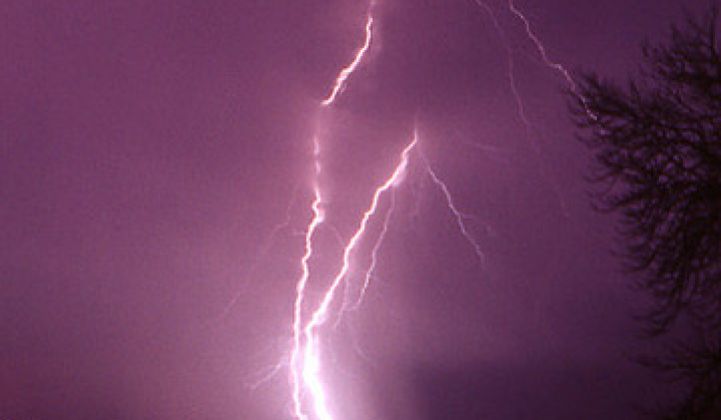WeatherBill says it will use probability to insure farmers against the unexpected.
The question now is which side -- certainty or chaos -- will win.
The company, which received a $42 million injection from Google Ventures, Khosla Ventures, NEA and others today, has produced a product called Total Weather Insurance. In a nutshell, it exploits the magic of probabilistic computing, the underlying technology of Google and other search engines, to predict weather patterns and help farmers plan accordingly.
The company's algorithms continually examine streams of incoming weather data, past history, local conditions and other factors to devise a personalized insurance policy for a farmer. Then, if the farmer experiences unusual amounts of rain or snow, or a lengthy drought, WeatherBill pays the claim automatically. (Last year we predicted Google would shift its green investments toward technologies that took advantage of its expertise in probability.) Founders David Friedberg and Siraj Khaliq came from Google.
The company charges $15 to $75 per acre per policy. Here's an example of how it might work. Let's say a farmer buys drought coverage for $10 an acre for the month of July. The farmer under this policy might get $100 per acre if rainfall is 2.31 inches less than normal, and $50 an acre if it is 1.15 inches less than normal. Premiums are calculated on the likelihood of loss. But what if nothing bad happens: the accumulation of those premium payments indicates why WeatherBill opts to be an insurer rather than a company that provides weather forecasting and planning services.
“Nine years ago we had a very dry growing season in rural Ohio. A year later we experienced 14 inches of rain in 10 days. The flip flop of weather from one year to the next is the biggest challenge farmers face,” said Steve Wolters, a farmer growing corn, soybean and wheat in Celina, Ohio in a prepared statement. “It makes sense to me to take advantage of WeatherBill’s automated weather insurance programs that pinpoint the weather conditions expected to affect my land and pay me if they happen."
Insurance, of course, is a cash cow. The millions of acres controlled by large agribusiness firms mean that the market potential is huge. How many times have you collected on your homeowner's policy or auto policy? Warren Buffett made a substantial portion of his fortune through insurance. When I practiced law, I felt I could have done my job more efficiently if I owned a parrot that was trained to say, 'Coverage denied.'
Traditional insurance, however, avoids assuming one type of risk like the plague: acts of God, otherwise known as earthquakes, lighting, tornadoes and bad weather. WeatherBill assumes some of these risks. The company also notes that 90 percent of crop losses around the world are caused by inclement weather. And the recent droughts in Ukraine and floods in Australia underscore that weather is getting wackier as the climate changes.
Traditional insurers also have another asset: namely, lots of assets. Urban skylines are dotted with buildings owned by insurers. How do you think AIG got into a position to gamble billions?
Farmers might be able to hedge their losses against the weather, but it could become difficult for WeatherBill in some situations to properly value risks or even to pay off claims. Expectations, exclusions, exceptions -- an entire cultural dynamic for this type of service will have to be developed for it to succeed, as well. (Ultimately, this could be sold to mainstream insurers as a planning tool.) Does this have to be regulated, state by state, by the Department of Insurance, or can it be classified as a different type of transaction?
It's a great idea, but Mother Nature sometimes plays with a stacked deck.



